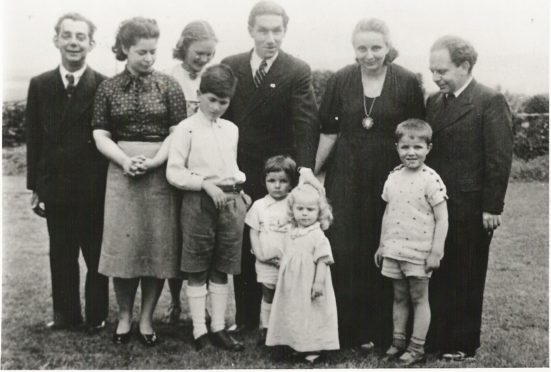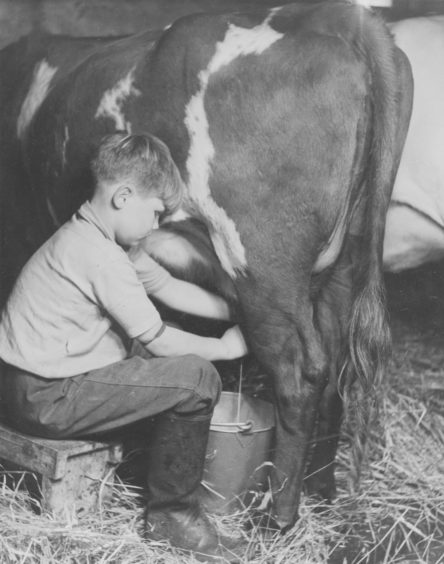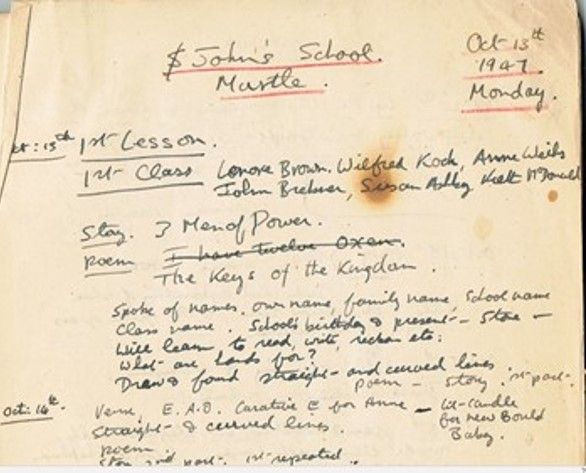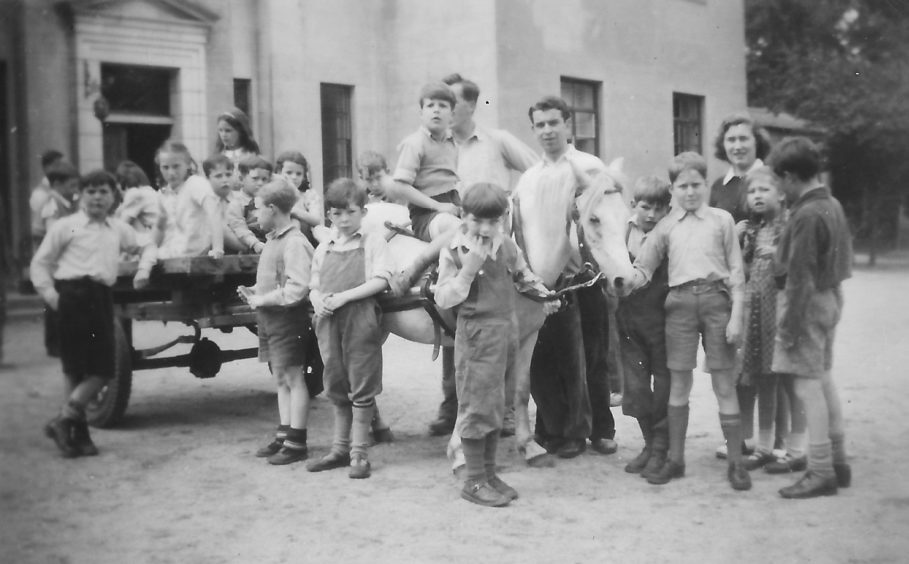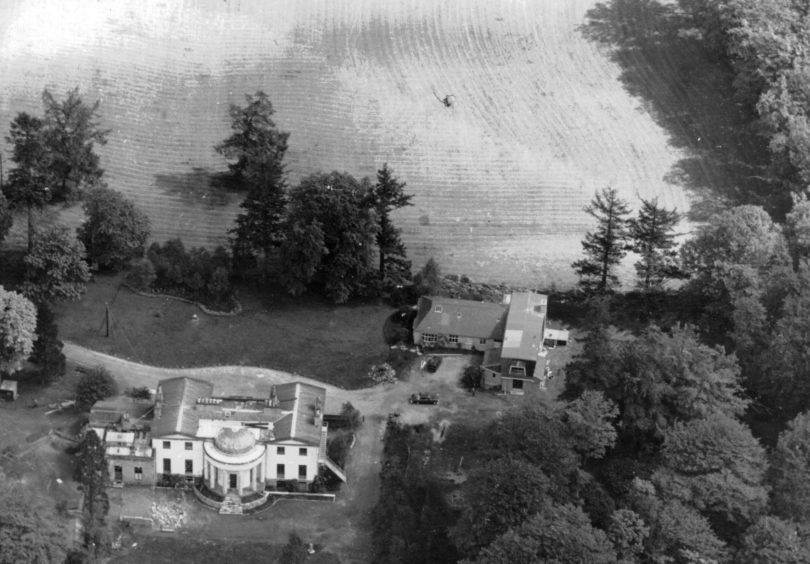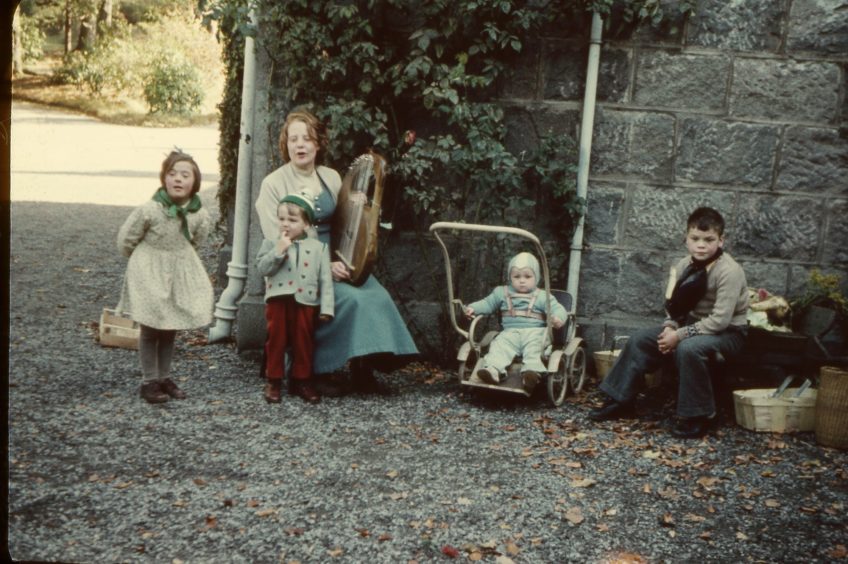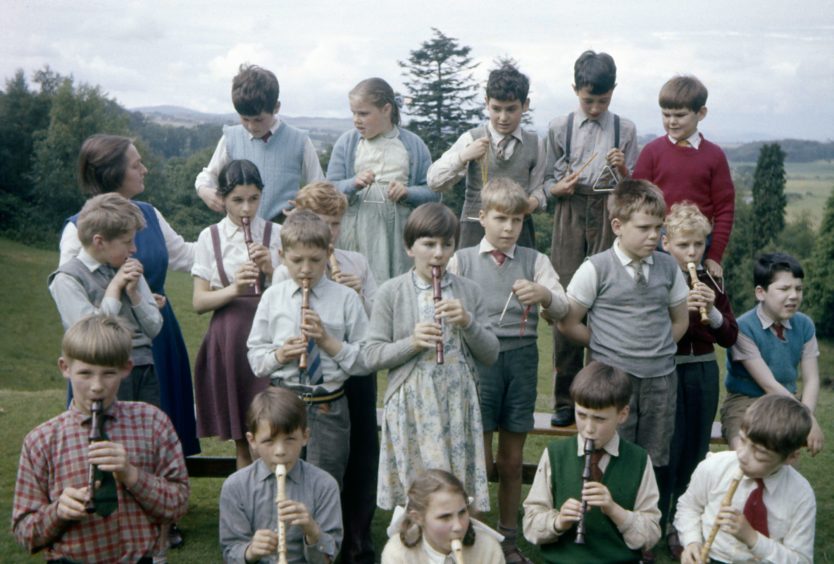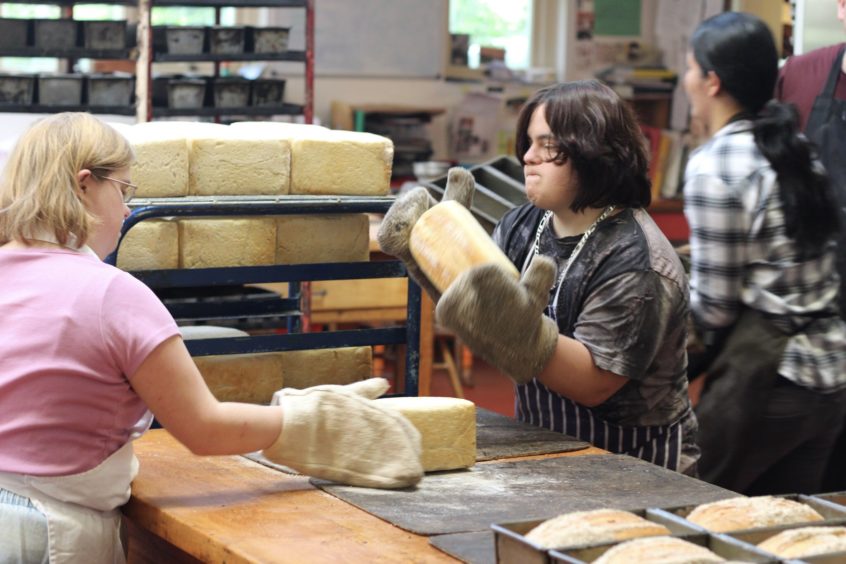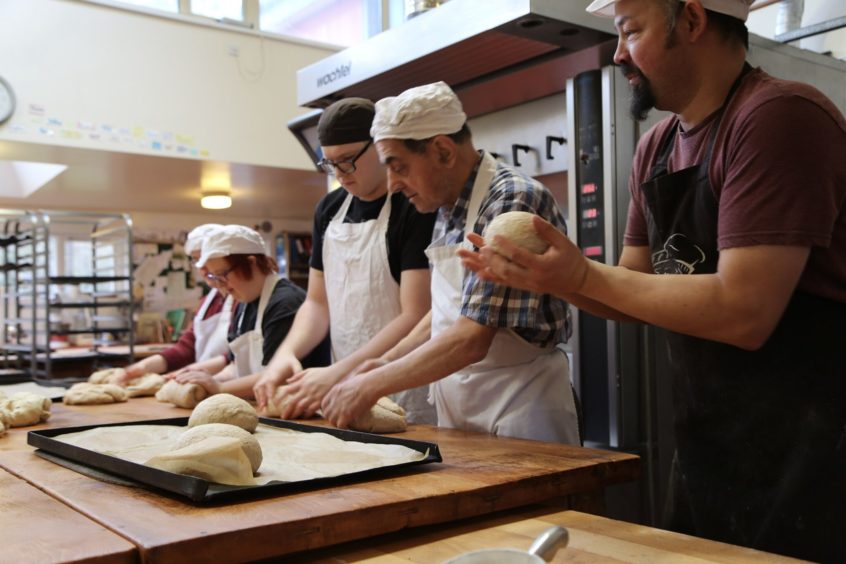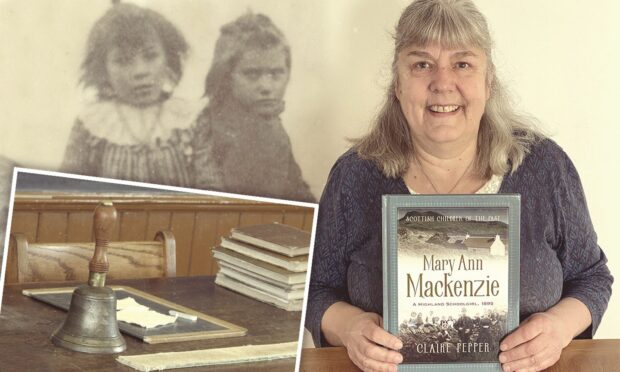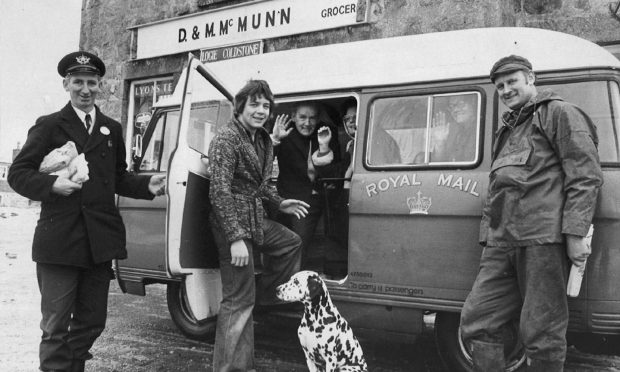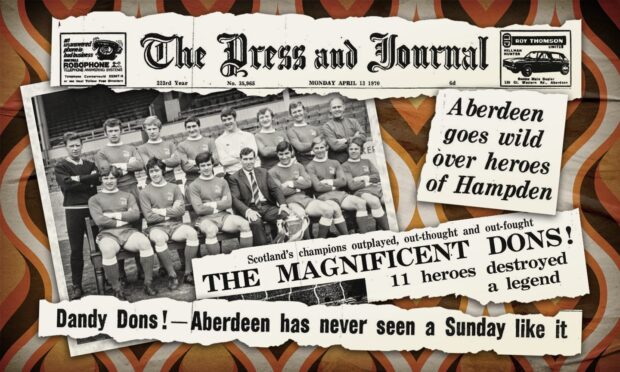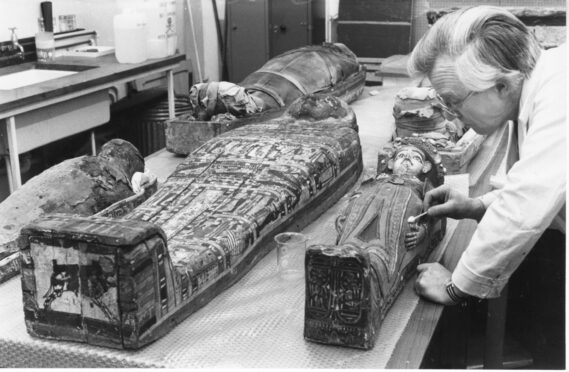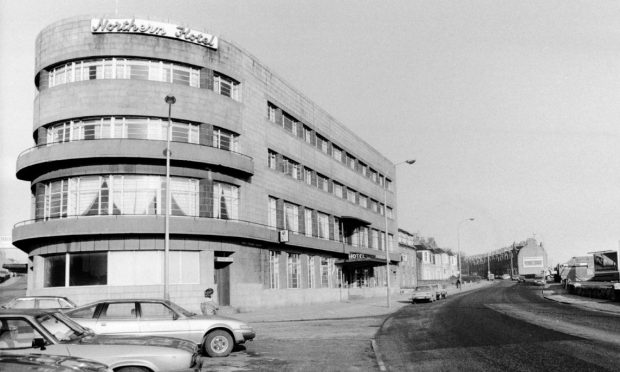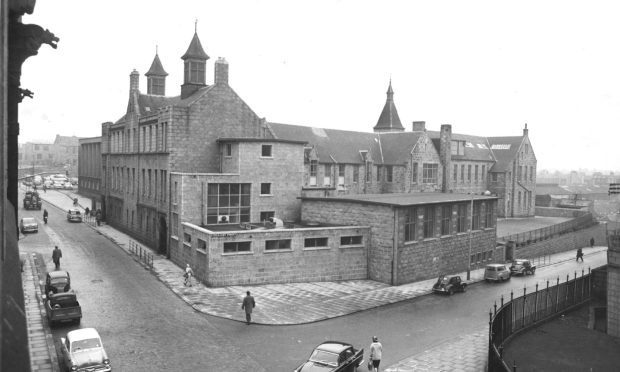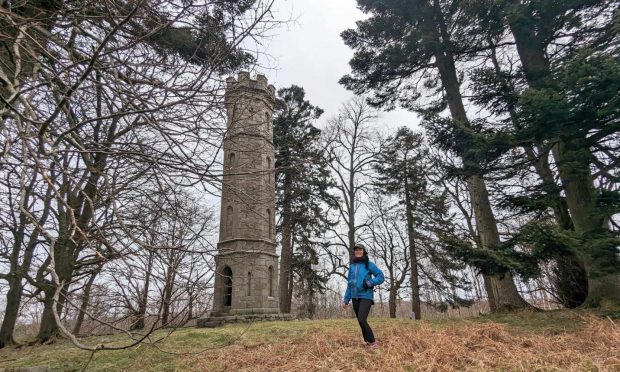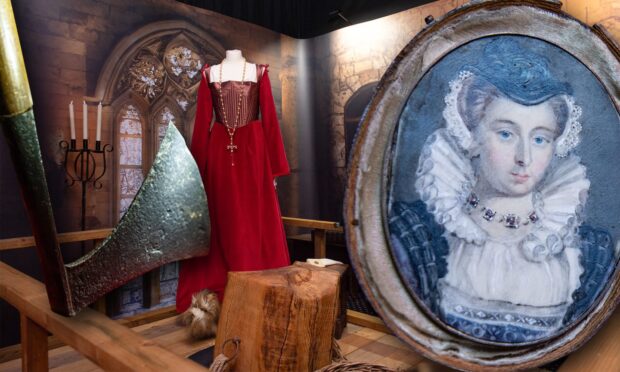It’s a charity which was launched in the midst of global turmoil by refugees who were fleeing for their lives from Nazi tyranny.
In the early days, some of the people it looked after were even regarded as “enemy aliens” by the British authorities amid the turbulence of the Second World War.
Looking back with pride
But now, almost 80 years later, Camphill School in Aberdeen is looking back with pride at the giant strides the organisation has taken in helping thousands of individuals with additional support needs, autism, learning disabilities, Down’s syndrome, Attention Deficit Hyperactivity Disorder (ADHD) and Fragile X Syndrome.
None of it has happened by accident.
On the contrary, the staff who work at five local centres in the north-east – Camphill School; Newton Dee; Beannachar, Simeon Care for the Elderly and Tigh A’Chomainn – have devised a range of innovative schemes to help their residents achieve their potential, whether they happen to be aged three or 73.
And the initiative, which sprung into existence on June 1 1940, has proved such a success that the Camphill movement now consists of more than 100 charities across 26 countries, including Britain, Germany, South Africa, the United States and India.
Alex Busch, the executive director of Camphill School in Aberdeen, has investigated the fashion in which the seeds of development were sown by a partnership between philanthropic trailblazers from Austria and Scotland.
Significant role
He said: “It is remarkable to think that 80 years ago a group of Austrian refugees fled from the Nazis and were welcomed by an Aberdeenshire family, the Haughtons, to begin pioneering work on what is now a worldwide movement.
“The people of Aberdeen and Aberdeenshire, with a special mention to the Haughton and Macmillan families, played a significant role in making Camphill what it is today and we believe this is something of which the north-east of Scotland can be proud.
“The early months were spent in Kirkton House, just outside Insch. But, by 1940, the founders and children had outgrown the house and the Macmillan family supported the group to purchase Camphill House in Milltimber, where it all began at the start of June.
“The early days were not without their challenges, because Dr Karl Konig and his fellow male co-workers were classed as enemy aliens and interned; some of them in Canada, and some in the Isle of Man.
“But they were not discouraged, they returned to continue their work and we can appreciate now the path they started so long ago.”
Small beginnings led to a massive development throughout the century
The manner in which Camphill has expanded its operations has been remarkable.
It began with just two children with special needs, but that figure rose to 12 after one year, and then during and after the war, the number increased to more than 65.
New communities
There are pictures from the time which show youngsters engaged in a number of activities such as milking cows, reading and writing, going on healthy walks in the countryside, and, in many cases, feeling useful and loved for the first time in their lives.
In the 1950s, some of the original Camphill founders decided to create new Camphill communities in England and abroad and that momentum has never ceased.
Mr Busch said: “Today, there are over 100 Camphill charities worldwide supporting thousands of children and adults with additional support needs.
“Camphill School Aberdeen, the original charity, now supports 143 children and young people in our nursery, school and training centre on a day and residential basis.
“In Aberdeen, there are five independent Camphill charities and together we provide direct support to over 340 children and adults with autism and other support needs.”
The travails faced by the initial children who came to Camphill
The first two youngsters to arrive in the north-east were Peter and Rudi.
The former stayed in Aberdeen until 1956, boarding and attending the school, and when Botton Village in England became part of the charity’s expansion, he was offered – and accepted – the opportunity to be a pioneer for the second time in his life.
He was one of the first adults to join the adult community/village which had just been established. And that is where he stayed for the rest of his life; well-known and much-loved by the community there.
Rudi, in contrast, was categorised as an enemy alien by the British Government and was sent to Canada on July 3 1940.
Eventually, after being released, he made his way from Nova Scotia to Liverpool only to be sent immediately to the Isle of Man to be interned again in what would have been a traumatic ordeal for any young person.
His travails continued until 1944 when he was finally, fully released.
Mr Busch expained: “Aberdeen (and Camphill) played a significant part in the evacuation, via Kindertransport, to Britain after Kristallnacht in 1938.
“Not only did our pioneers escape to Scotland as refugees, but they also rescued a steady number of children who came to Britain before 1938, and afterwards up to 1939 and throughout the Second World War.
“Coming to Camphill for Jenny in 1951, meant a whole day’s travel to London from Devon.
“From there, at Kings Cross Station, she took the ‘Rudolf Steiner Special’ (a train service with extra carriages to Aberdeen in the evening which brings into mind something out of Harry Potter).
“At seven-years-old Jenny remembered: ‘For some reason, everything seemed so dark on the long journey from Kings Cross to Aberdeen’.
“But Camphill has always been about family and home, even when our pupils are boarding and maybe away from their own families and loved ones.”
Accentuating the positive to make sure people can be the best they can
Mr Busch and his colleagues are determined to keep working to improve the quality of care and support they provide for their charges.
All of the local Camphill charities provide day and residential services to specific age groups and help people from three years old to end of life.
He added: “We focus on every person’s abilities, rather than disabilities.
“We provide opportunities for them to learn, develop new skills and make a positive contribution to community life – this can include helping to grow vegetables, working on our farms, baking and delivering bread, maintaining bicycles and being involved in a variety of household duties.
“We also support people to create products from scratch such as pottery, pieces of jewellery, weaving, arts and crafts and candle making.
“Everyone is valued and has purpose, something which we all need and deserve.”
Plans arranged to commemorate an international success story
Around the world, Camphill charities will be celebrating the organisation’s 80th anniversary on June 1 and staff have promised to organise a global birthday party.
Mr Busch said: “Locally, we are planning a number of events, including an exhibition which will showcase so many of the stories of the children and workers who were involved in the first two decades of Camphill’s history.
“The events will take place throughout the next year to bring together local people and the Camphill charities to celebrate the last 80 years and they will help us share our exciting vision for the future in Aberdeen.”
Timmy Mallett leads tributes to ‘incredible’ Camphill workers
Entertainer Timmy Mallett has paid tribute to the Camphill staff who provided “inspirational” support to his late brother for more than 30 years and said he hopes they enjoy a “wonderful” 80th birthday party on June 1.
Martin Mallett was born with Down’s syndrome and lived at Newton Dee in Aberdeen.
He died in 2018, aged 64.
The former children’s TV presenter, pop star, and actor, who appeared in “I’m A Celebrity…Get Me Out of Here” in 2008 made several trips to the north of Scotland to be with Martin and spend as much time with him as he could.
He said: “We loved the way that the staff at Newton Dee in Bieldside helped my dear brother to reach his potential.
“Martin had Down’s syndrome and language difficulties, but it never stopped him engaging with everybody he met and he blossomed and realised his potential by moving to Aberdeen back in 1981.
“I am extremely grateful to everybody who allowed him to sparkle during his life.
“Camphill Newton Dee will always be a very special place to the Mallett family.”
How Camphill School is coping with Covid-19 lockdown
Camphill School Aberdeen has responded positively to the challenges faced by the Covid-19 lockdown.
The residential children and young people, who have additional support needs, continue to live in the 10 households across the three campuses.
The students at Camphill School are all engaged in artistic projects and keeping active.
Mr Busch said: “Every week, the households are set a challenge. Some examples have been, creating mandalas in the gardens, making outdoor decorations, drawing rainbows, creating artwork and positive messages to display outside and baking something with rhubarb we have been growing.
“A range of delicious jams, cakes, cordials and crumbles were made.
“Students took part in the 2.6 challenge and have raised over £500 towards our tractor appeal and there is a terrific sense of positivity, creativity and resilience here.
“Parents cannot visit at the moment, but the students and staff keep in regular contact with them – using video calls and picture bulletins.
“The parents’ feedback has been very positive with many recent emails expressing how much they appreciate the staff’s commitment and support to keep their children safe and taking care of their physical and mental health.”
